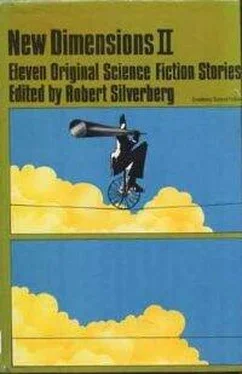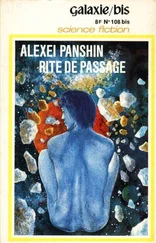R. LAFFERTY - Eurema's Dam
Здесь есть возможность читать онлайн «R. LAFFERTY - Eurema's Dam» весь текст электронной книги совершенно бесплатно (целиком полную версию без сокращений). В некоторых случаях можно слушать аудио, скачать через торрент в формате fb2 и присутствует краткое содержание. Год выпуска: 1972, ISBN: 1972, Издательство: Doubleday, Жанр: Фантастика и фэнтези, на английском языке. Описание произведения, (предисловие) а так же отзывы посетителей доступны на портале библиотеки ЛибКат.
- Название:Eurema's Dam
- Автор:
- Издательство:Doubleday
- Жанр:
- Год:1972
- ISBN:0-385-09141-9
- Рейтинг книги:5 / 5. Голосов: 1
-
Избранное:Добавить в избранное
- Отзывы:
-
Ваша оценка:
- 100
- 1
- 2
- 3
- 4
- 5
Eurema's Dam: краткое содержание, описание и аннотация
Предлагаем к чтению аннотацию, описание, краткое содержание или предисловие (зависит от того, что написал сам автор книги «Eurema's Dam»). Если вы не нашли необходимую информацию о книге — напишите в комментариях, мы постараемся отыскать её.
Eurema's Dam — читать онлайн бесплатно полную книгу (весь текст) целиком
Ниже представлен текст книги, разбитый по страницам. Система сохранения места последней прочитанной страницы, позволяет с удобством читать онлайн бесплатно книгу «Eurema's Dam», без необходимости каждый раз заново искать на чём Вы остановились. Поставьте закладку, и сможете в любой момент перейти на страницу, на которой закончили чтение.
Интервал:
Закладка:
Albert himself wasn’t much good for anything. But he had in himself the low knack for making machines that were good at everything.
His machines did a few things. You remember that anciently there was smog in the cities. Oh, it could be drawn out of the air easily enough. All it took was a tickler. Albert made a tickler machine. He would set it fresh every morning. It would clear the air in a circle three hundred yards around his hovel and gather a little over a ton of residue every twenty-four hours. This residue was rich in large polysyllabic molecules which one of his chemical machines could use.
“Why can’t you clear all the air?” the people asked him.
“This is as much of the stuff as Clarence Deoxyribonucleiconibus needs every day,” Albert said. That was the name of this particular chemical machine.
“But we die of the smog,” the people said. “Have mercy on us.” “Oh, all right,” Albert said. He turned it over to one of his reduplicating machines to make as many copies as were necessary.
You remember that once there was a teen-ager problem? You remember when those little buggers used to be mean? Albert got enough of them. There was something ungainly about them that reminded him too much of himself. He made a teen-ager of his own. It was rough. To the others it looked like one of themselves, the ring in the left ear, the dangling side-locks, the brass knucks and the long knife, the guitar pluck to jab in an eye. But it was incomparably rougher than the human teen-agers. It terrorized all in the neighborhood and made them behave, and dress like real people. And there was one thing about the teen-age machine that Albert made: it was made of such polarized metal and glass that it was invisible except to teen-ager eyes.
“Why is your neighborhood different?” the people asked Albert. “Why are there such good and polite teen-agers in your neighborhood and such mean ones everywhere else? It’s as though something had spooked all those right around here.”
“Oh, I thought I was the only one who didn’t like the regular kind,” Albert said.
“Oh, no, no,” the people answered him. “If there is anything at all you can do about them—”
So Albert turned his mostly invisible teen-ager machine over to one of his reduplicating machines to make as many copies as were necessary, and set one up in every neighborhood. From that day till this the teen-agers have all been good and polite and a little bit frightened. But there is no evidence of what keeps them that way except an occasional eye dangling from the jab of an invisible guitar pluck.
So the two most pressing problems of the latter part of the twentieth century were solved, but accidentally, and to the credit of no one.
As the years went by, Albert felt his inferiority most when in the presence of his own machines, particularly those in the form of men. Albert just hadn’t their urbanity or sparkle or wit. He was a clod beside them, and they made him feel it.
Why not? One of Albert’s devices sat in the President’s Cabinet. One of them was on the High Council of World-Watchers that kept the peace everywhere. One of them presided at Riches Unlimited, that private-public-international instrument that guaranteed reasonable riches to everyone in the world. One of them was the guiding hand in the Health and Longevity Foundation which provided those things to everyone. Why should not such splendid and successful machines look down on their shabby uncle who had made them?
“I’m rich by a curious twist,” Albert said to himself one day, “and honored through a mistake in circumstance. But there isn’t a man or a machine in the world who is really my friend. A book here tells how to make friends, but I can’t do it that way. I’ll make one my own way.”
So Albert set out to make a friend.
He made Poor Charles, a machine as stupid and awkward and inept as himself.
“Now I will have a companion,” Albert said, but it didn’t work. Add two zeros together and you still have zero. Poor Charles was too much like Albert to be good for anything.
Poor Charles! Unable to think, he made a—(but wait a moleskin-gloved minute here, Colonel, this isn’t going to work at all)—he made a machi—(but isn’t this the same blamed thing all over again?)—he made a machine to think for him and to—
Hold it, hold it! That’s enough. Poor Charles was the only machine that Albert ever made that was dumb enough to do a thing like that.
Well, whatever it was, the machine that Poor Charles made was in control of the situation and of Poor Charles when Albert came onto them accidentally. The machine’s machine, the device that Poor Charles had constructed to think for him, was lecturing Poor Charles in a humiliating way.
“Only the inept and deficient will invent,” that damned machine’s machine was droning. “The Greeks in their high period did not invent. They used neither adjunct power nor instrumentation. They used, as intelligent men or machines will always use, slaves. They did not descend to gadgets. They, who did the difficult with ease, did not seek the easier way.
“But the incompetent will invent. The insufficient will invent. The depraved will invent. And knaves will invent.”
Albert, in a seldom fit of anger, killed them both. But he knew that the machine of his machine had spoken the truth.
Albert was very much cast down. A more intelligent man would have had a hunch as to what was wrong. Albert had only a hunch that he was not very good at hunches and would never be. Seeing no way out, he fabricated a machine and named it Hunchy.
In most ways this was the worst machine he ever made. In building it he tried to express something of his unease for the future. It was an awkward thing in mind and mechanism, a misfit.
Albert’s more intelligent machines gathered around and hooted at him while he put it together.
“Boy! Are you lost!” they taunted. “That thing is a primitive! To draw its power from the ambient! We talked you into throwing that away twenty years ago and setting up coded power for all of us.”
“Uh—someday there may be social disturbances and all centers of power seized,” Albert stammered. “But Hunchy would be able to operate if the whole world were wiped smooth.”
“It isn’t even tuned to our information matrix,” they jibed. “It’s worse than Poor Charles. That stupid thing practically starts from scratch.”
“Maybe there’ll be a new kind of itch for it,” said Albert.
“It’s not even housebroken!” the urbane machines shouted their indignation. “Look at that! Some sort of primitive lubrication all over the floor.”
“Remembering my childhood, I sympathize,” Albert said.
“What’s it good for?” they demanded.
“Ah—it gets hunches,” Albert mumbled.
“Duplication!” they shouted. “That’s all you’re good for yourself, and not very good at that. We suggest an election to replace you as—pardon our laughter—the head of these enterprises.”
“Boss, I’ve got a hunch how we can block them there,” the unfinished Hunchy whispered.
“They’re bluffing,” Albert whispered back. “My first logic machine taught me never to make anything that I can’t unmake. I’ve got them there and they know it. I wish I could think up things like that myself.”
“Maybe there will come an awkward time and I will be good for something,” Hunchy said.
Only once, and that rather late in life, did a sort of honesty flare up in Albert. He did one thing (and it was a dismal failure) on his own. That was the night of the year of the double millennium when Albert was presented with the Finnerty-Hochmann Trophy, the highest award that the intellectual world could give. Albert was certainly an odd choice for it, but it had been noticed that almost every basic invention for thirty years could be traced back to him or to the devices with which he had surrounded himself.
Читать дальшеИнтервал:
Закладка:
Похожие книги на «Eurema's Dam»
Представляем Вашему вниманию похожие книги на «Eurema's Dam» списком для выбора. Мы отобрали схожую по названию и смыслу литературу в надежде предоставить читателям больше вариантов отыскать новые, интересные, ещё непрочитанные произведения.
Обсуждение, отзывы о книге «Eurema's Dam» и просто собственные мнения читателей. Оставьте ваши комментарии, напишите, что Вы думаете о произведении, его смысле или главных героях. Укажите что конкретно понравилось, а что нет, и почему Вы так считаете.












